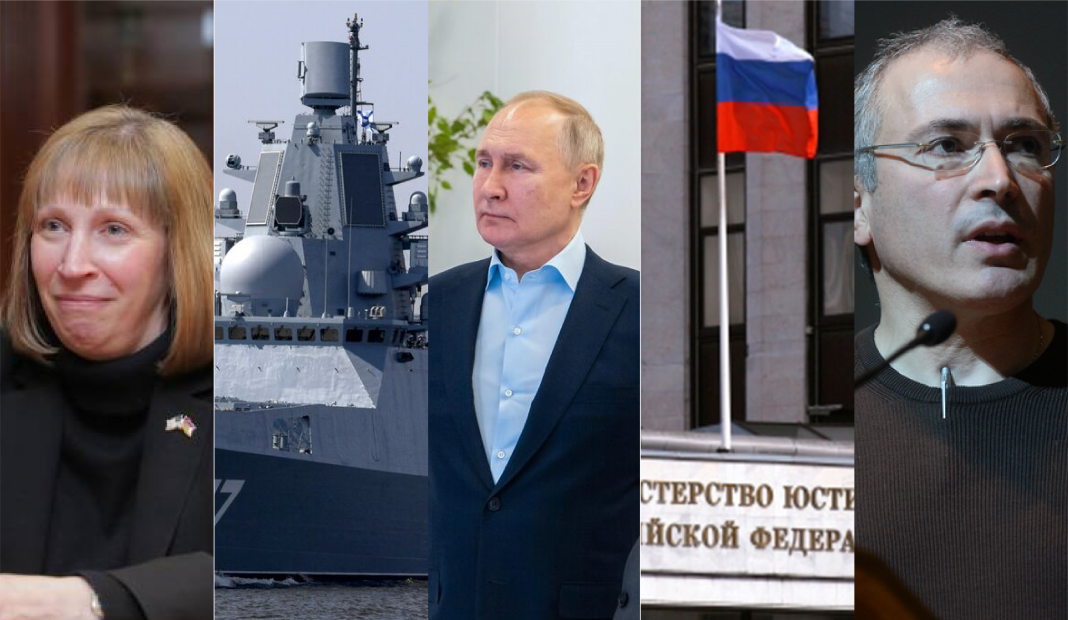This report describes the key events that had an important impact on the political, economic and social processes inside Russia.
Based on the results of the past week, the following key events can be brought to attention:
- Russia continues implementing a new strategy in relations with the West. On the one hand, the negotiation process with the United States is noticeably intensifying. The return of the American ambassador to Moscow may indicate an attempt to reduce the escalation between the two states. At the same time, the demonstration of Russian military power in the Atlantic testifies to Moscow’s unwillingness to retreat from its geopolitical goals. On the other hand, Russia’s influence is increasingly being squeezed out of the European space, which is noticeable both in the reduction in the number of intelligence service residents and in the decrease in the activity of several public organisations that often have close ties with each other.
- The Kremlin is increasingly preparing for the presidential elections due next year. Among the most notable movements are the total cleansing of the opposition field and all organisations that can somehow be associated with Western structures or receive funding from them. At the same time, there is a struggle with the Western system of disseminating “soft power” technologies, which are implemented through the extensive activities of public organisations. In the absence of a constructive reaction from society, it can be stated that the West is increasingly losing its position on this issue, which affects the receipt of reliable information about domestic political processes in Russia.
- Russia is returning to the practice of creating political projects in Ukraine. The attempt to reactivate Viktor Medvedchuk testifies to the Kremlin’s desire to use the well-known technology of dividing Ukraine into West and East. Despite criticism of Medvedchuk’s figure in Ukraine and Russian political circles, there are still pressure groups in the Kremlin who are betting on him. These include the deputy heads of the Presidential Administration, Sergey Kiriyenko and Sergey Gromov.
During January 23rd–29th, the following topics were the most relevant for Russia:
1. Vladimir Putin’s meeting with students at Moscow State University named after Mikhail Lomonosov
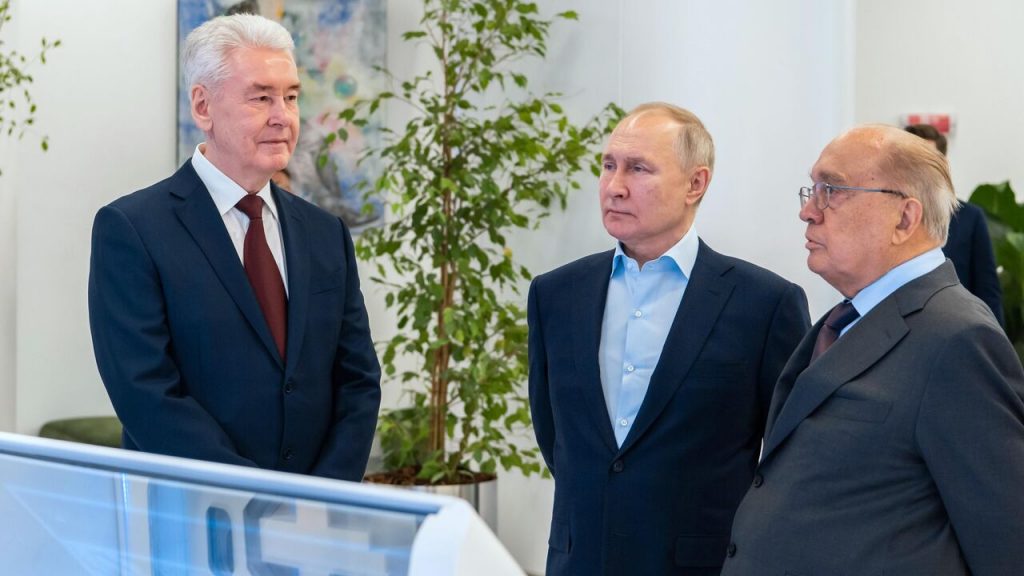
On Wednesday, January 25, Vladimir Putin held a meeting with students of Russian higher educational institutions. The event was timed to coincide with the Day of Russian Students, which is celebrated on this day (the date of the establishment of Moscow State University). Before the meeting, Putin toured the new Lomonosov Science Cluster of the Vorobyovy Gory Innovation Science and Technology Center of Moscow State University. During the conversation with students, Putin answered several questions and promised to promote science’s further development in domestic educational institutions. During a visit to Moscow State University, Putin was accompanied by Moscow State University head Viktor Sadovnichy and Moscow Mayor Sergey Sobyanin.
Outcomes and outlook:
By participating in such events, Putin is trying to shape the image of a leader supported by pensioners and the younger progressive generation. Recently, he has been paying more and more attention to the development of educational and scientific clusters in Russia, which are designed to reduce the outflow of young scientists (in fact, as well as young people in general) and the development of science within the country.
In 2021, Putin initiated the creation of the Congress of Young Scientists. On December 1, 2022, as part of this event, he met with the participants of the congress in the Sirius Park of Science and Art in Sochi (Ascolta wrote about this earlier).
At the same time, the opening of new scientific clusters and the creation of conditions for scientific activity became a forced direction, in the context of the imposition of sanctions, first after the annexation of Crimea and later after Russia’s full-scale invasion of Ukraine. A significant part of those who left Russia because of their unwillingness to support the Kremlin’s policies were precisely the representatives of the younger generation, young scientists, IT workers and representatives of more creative professions (conditional middle class). On the one hand, this situation played into the hands of the Russian authorities since the risk of protest moods in society was levelled (it is the middle class that is most prone to protests and revolutions).
On the other hand, understanding that there is a colossal outflow of “brains” and labour from Russia, the authorities were forced to respond to this problem.
In this situation, it is essential to note that with the qualitative implementation of such a strategy, the creation of high-quality scientific clusters can lead to a partial return of young people to Russia. Still, we are not discussing the near future.
2. Frigate “Admiral of the Fleet of the Soviet Union Gorshkov” in Atlantics
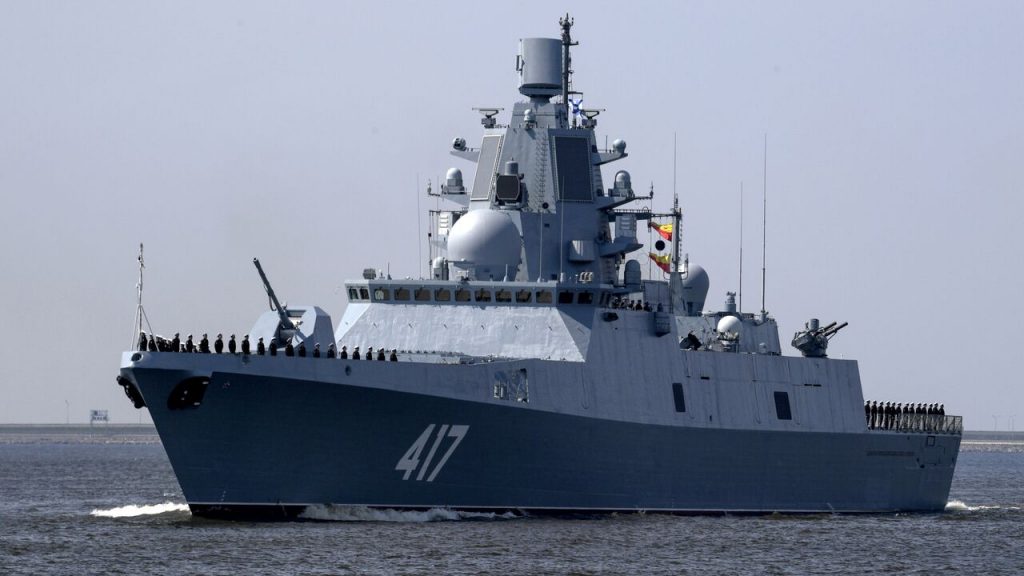
On Wednesday, January 25, the crew of the Russian frigate “Admiral of the Fleet of the Soviet Union Gorshkov”, operating in areas of the western Atlantic Ocean, conducted an exercise on hypersonic missile weapons using computer simulation. As a result, according to official statements, the organization of launching a missile attack with a Zircon hypersonic missile on a sea target imitating a mock enemy ship located at a distance of more than 900 kilometres was worked out.
The march of ships consisting of the frigate “Admiral of the Fleet of the Soviet Union Gorshkov” and the medium sea tanker “Kama” is under the command of the commander of the division of missile ships of the Northern Fleet, Captain 1st Rank Oleg Gladky, and began on January 4.
Outcomes and outlook:
By such actions, Russia is trying to demonstrate a new approach to diplomacy to the West (primarily the United States, whose area of influence includes the western coast of the Atlantic). It is unlikely that the actions of the “Admiral Gorshkov” frigate were regarded as a threat, although its movement was actively monitored throughout the campaign. Instead, we are talking about Russia’s attempt not only to respond to several blatant ridicules from the West but also to demonstrate the existence of alternative methods for solving specific problems.
First, American experts have repeatedly stated that Russian hypersonic missiles do not live up to their names for several reasons. Using such weapons in the western Atlantic should have convinced everyone of the opposite. It should be borne in mind that the launch was accurately monitored (moreover, very carefully) by the US military.
Secondly, the West was somewhat sceptical about Russia’s ability to produce Zircon missiles, announced in 2011. Of course, we are not talking about mass production. However, still, Russia was able to demonstrate that several samples capable of accurately hitting targets at long distances are in its arsenal. Moreover, this type of missile is capable of carrying nuclear warheads.
Similar launches have taken place before. For example, in January 2020, Zircon was also launched from the Admiral Gorshkov frigate. Still, then the target was hit at a distance of 200 kilometres, and the launch itself raised many questions. So now, the task was to conduct a test in front of everyone.
Thirdly, American hypersonic missiles are still under development. And although AGM-183A missiles were successfully tested in July 2022, there is no talk of mass production or combat use yet. The launch of a Russian hypersonic missile with the possibility of carrying a nuclear charge, and even off the coast of the United States, has become very revealing.
Fourthly, such actions of Russia should also be considered as an element of the general concept of “nuclear intimidation”, which is now applied not only to the Ukrainian issue. In fact, Russia is trying to demonstrate to the West that if its demands are not heard, then the next Zircon (according to unconfirmed information, this type of missile is guaranteed to overcome any modern and promising air defence systems) can be launched at one of the “acceptance centres decisions that people like to talk about in Moscow.
Of course, such behaviour of Russia should receive some answer. It will likely become clear how linear it will be.
It is also important to note that already in February 2023, several joint exercises are planned to be held off the coast of the Republic of South Africa with the Navy of the Republic of South Africa and the Navy of the People’s Liberation Army of China. Apparently, this is the next point in the direction of “Admiral Gorshkov”.
3. Dissemination of the Moscow Helsinki Group
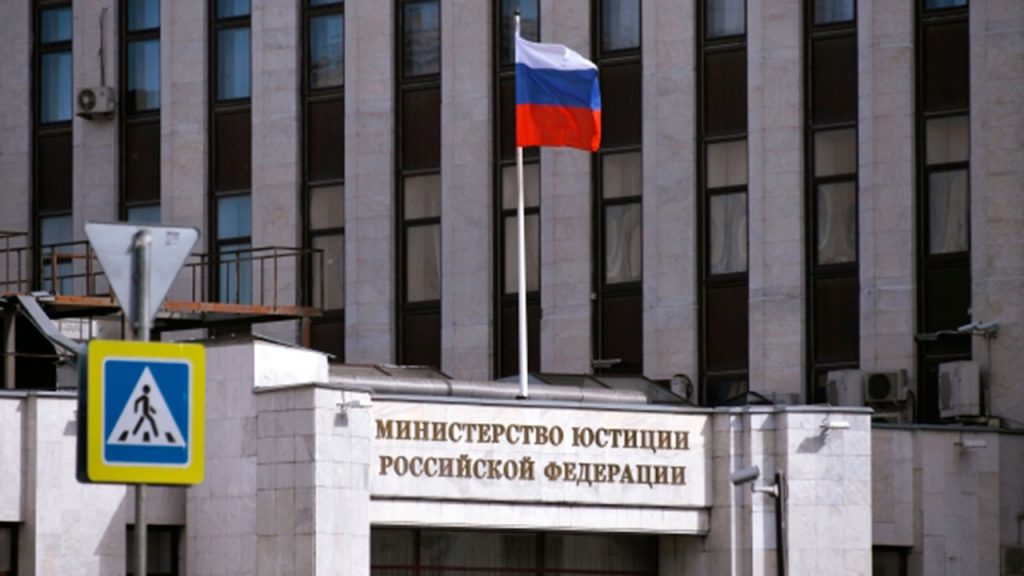
On Wednesday, January 25, the Moscow City Court liquidated the oldest human rights organisation operating in Russia, the Moscow Helsinki Group. The court made this decision in the suit of the Ministry of Justice of the Russian Federation. The lawsuit was based on the results of an unscheduled inspection by the Moscow Prosecutor’s Office, which lasted from November 8 to November 28, 2022. It is noted that the main reason for the lawsuit was the organisation’s activities in all territories of Russia, with only a regional status. It is also worth noting that the Court’s decision can be appealed to the First Court of Appeal within a month, which is hardly worth counting on, given the number of high-profile events in the fight against “foreign agents” inside Russia.
Outcomes and outlook:
In fact, Russia continues to purge all social movements and organisations that have links with the West or receive Western grants for their activities. The history of the Moscow Helsinki Group is the history of human rights activities since the 1970s. This is a whole legend. Such well-known human rights activists and dissidents as Sergey Orlov, Lev Ponomarev and Sergey Kovalev worked at the MHG.
MHG tried to close several times. In 2006, the group was accused of spying for the UK, but they could not prove it in court. Also in 2006, director Arkadiy Mamontov made the film “Spies”, in which he showed the MHG and the Eurasia Foundation’s subversive activities, allegedly financed directly by the British Embassy. The situation worsened after the death 2018 of MHG leader Lyudmila Alekseeva. The new leadership needed to have that degree of influence on the minds or charisma.
We are dealing with the continuation of the policy of banning the activities of all structures that could be perceived as a kind of “bridge” between the Russian intelligentsia and the West.
4. The article on the future of Russia by Garry Kasparov and Mikhail Khodorkovsky

On Monday, January 23, a Russian-language version of an article by Garry Kasparov and Mikhail Khodorkovsky (both are recognised as foreign agents in Russia and living outside the country) titled “Do not be afraid of Putin’s death” was published. It is worth noting that the original article appeared on the Foreign Affairs website on January 20. In the article, they described their vision of the future of Russia in case they came to power. In particular, we are talking about the victory of Ukraine and the United States, the reduction of funding for the Russian army, the payment of repatriations to Ukraine, the change in the Constitution for a parliamentary republic, as well as several other very revolutionary statements.
Key theses:
- “2023 will be a decisive year. If the West stands firm, the Putin regime will likely collapse shortly.”
- “Putin’s attempts to restore the lost Russian empire are doomed to failure. Therefore, the moment has come for the transition to democracy and power transfer to the regional level. But for such a political transformation, Putin must suffer a military defeat in Ukraine.”
- “After Putin’s defeat in the war, Russia will have to either become a vassal of China or start reintegrating with Europe (first by fairly redressing Ukraine for the damage caused during the war and punishing those responsible for war crimes).”
- “Immediately after coming to power, the State Council will conclude a peace agreement with Ukraine, recognising the country’s 1991 borders and fairly compensating for the damage.”
- “In the rear, the State Council will begin the demilitarisation of Russia, reducing the size of the armed forces and, as a result, the cost of their maintenance.”
- “Some of Ukraine’s key partners are refusing to provide Kyiv with the weapons it needs to deliver a knockout punch. In particular, the administration of US President Joe Biden seems to be afraid of the chaos that could accompany a decisive defeat for the Kremlin.”
- “The United States must not let its fears get in the way of Ukraine’s hope.”
Outcomes and outlook:
Despite some support, the revolutionary statements of Kasparov and Khodorkovsky are still more like an attempt to prove that they are the leading oppositionists among other similar Russian oppositionists. In fact, a system of conflicts and disagreements within the opposition structures, similar to the Belarusian one, is emerging, which are fighting among themselves for influence and resources actively represented by the West.
At the same time, the article is built on repeated appeals to the United States and the Joe Biden administration, which, according to the authors, is doing a lot, but not enough, to defeat Russia. In this context, it seems that this opposition group is trying to attract attention not so much in Russia as in the West, using the method of moderate criticism for this: “we will help you cope with your problems, just give us more money.”
It is also indicative that with their article Kasparov and Khodorkovsky are trying to create a certain counterbalance to Dmitry Medvedev, who tirelessly produces fatalistic statements and threats against the West. We can talk about an attempt to confront in determining the image of future Russia: since 2014, the Kremlin has been actively working to create the impression of Putin – the “saviour of Russia”, allegedly “if not Putin, then Russia will face the fate of Ukraine.” Recently, a similar technology has begun to be actively used, but for a Western audience: “If not Putin, then either Medvedev or someone with Medvedev’s ideas will come to power in Russia.” In this case, one of the main messages of the article is to offer an alternative: “If not Putin, then those who understand what democracy is can come to power in Russia. Just give us more money.”
You should not count on a special effect from this article. Still, in the case of a consistent formation of such an image, the opposition movement of Kasparov Khodorkovsky can give new ideas and meanings for the appearance of the image of the future Russia without Putin. On the other hand, one can hardly count on the fact that Kasparov or Khodorkovsky personally will be able to lead the political process in Russia in the event of a change of power.
5. Lynne Marie Tracy’s arrival to Moscow
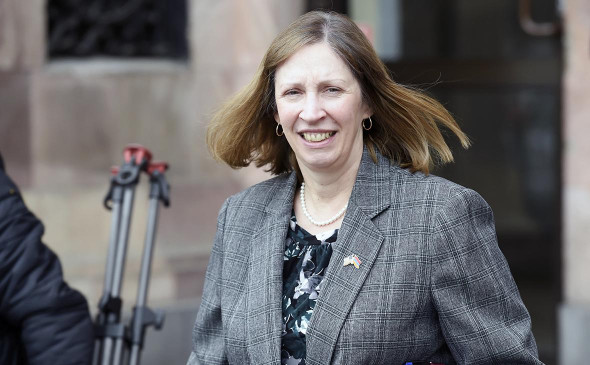
On Thursday, January 26, Lynn Tracy, the new US Ambassador to Russia, arrived in Moscow. The US Senate approved her candidacy on December 21, 2022, and on January 3, Tracy’s imminent arrival at the workplace was announced by US State Department spokesman Ned Price. Earlier, Ascolta assumed that Lynn Tracy would arrive in Moscow in early January, but certain conditions delayed the return of the American ambassador to Moscow.
Outcomes and outlook:
Of course, the presence of ambassadors in Moscow and Washington is a good sign for a possible de-escalation in relations. However, we are not talking about lifting sanctions or severe changes in the Ukrainian issue. Instead, it is possible to reduce the tension around the nuclear threat and intensify attempts to find compromises on several issues.
On Saturday, January 28th, Russian Deputy Foreign Minister Sergey Ryabkov announced that he would present his credentials to the new US Ambassador to the Russian Federation, Lynn Tracy, early next week. He did not name the exact date but specified that this procedure was agreed upon with Mrs Tracy.
It is noteworthy that even earlier, Washington did not withdraw its ambassador from Moscow. The previous US ambassador to Russia, John Sullivan, stepped down in September 2022 due to his wife’s illness. She had been ill with cancer for a long time; her condition worsened sharply in early autumn, and she died on September 5th. Sullivan emphasised that his departure had nothing to do with the Russian war in Ukraine or with the policies of the Biden administration. The arrival of Lynn Tracy in Moscow can only confirm Sullivan’s words about the absence of any problems in communication.
As Ascolta noted, Lynn Tracey has extensive experience in Russia and the Central Asian region. This factor played an essential role in her appointment to a rather significant position at the State Department.
At the same time, the position of the Russian Foreign Ministry was very indicative, where they noted that it was impossible to think of a “worse background” for the arrival of a new US ambassador since it coincided with Joe Biden’s decision to supply modern American battle tanks to Ukraine:
“As for the possibility of improving Russian-American relations, against the background of the hybrid war declared to us by Washington, we do not operate with these categories. What possible improvement can we talk about if they decide to supply heavy weapons?” – said Maria Zakharova.
At the same time, it is possible that the coincidence in time between the two events was not accidental. Especially if we consider supplying new types of weapons to Ukraine as an attempt by the West to raise the stakes in negotiations with Russia.
In any case, the next month will be full of events, the outcome of which will demonstrate the readiness of Moscow and Washington to negotiate, as well as the effectiveness of the diplomatic missions of both sides.
6. Political activation of Viktor Medvedchuk
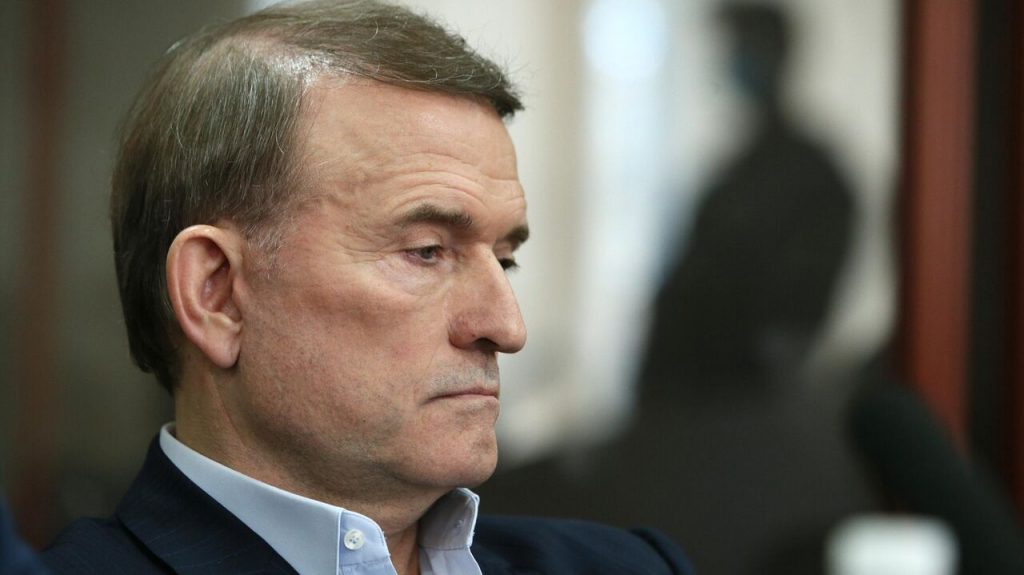
In its previous digest, Ascolta analyzed the activation of Viktor Medvedchuk associated with publishing an article under his name in the Russian edition of Izvestia. At the same time, on January 26, Viktor Medvedchuk gave an interview with the RT television channel, in which he stated that he “plans to create a movement of Ukrainians who disagree with the policy of Kyiv.” It is noteworthy that the activation of the figure of Viktor Medvedchuk caused criticism in Ukraine and Russian political circles. At the same time, such activity of “Putin’s godfather” still forces us to analyse it.
Key theses of Medvedchuk’s interview:
- “It is necessary that both in Russia, and in Ukraine, and in the West, they hear the voice of another Ukraine. But she is.”
- “Today Ukraine does not exist”: the country does not meet the status of an independent, democratic, legal and social power.
- “When we unite people, find out their position, and for some reason, I am sure that this position is against the authorities, against Zelensky, then it will be completely different.”
- “Ukraine can have a future only if it ceases to be militaristic and moves away from the ideology of neo-Nazism.”
Outcomes and outlook:
If, until recently, Medvedchuk’s activation was considered in the context of creating a political project for the Ukrainian territories occupied by Russia, then from his last interview, it becomes clear that such a project is designed for those who are either in the territories controlled by the Ukrainian authorities or have left Ukraine (moreover, both to Europe and Russia or other post-Soviet states).
In this case, such a project may be another attempt to get an anti-war electorate that does not support the actions of the West and advocates a peaceful settlement of the situation. But, at the same time, it is highly doubtful that such an electorate can support an openly pro-Russian politician.
After Medvedchuk’s release from arrest and emigration, many believed that his political career had ended. He turned out to be an outsider not only in Ukraine but also in many ways in Russia (Putin’s blitzkrieg plans in the spring of 2022 were built, not least based on reports received by the Kremlin from Medvedchuk and his entourage regarding the natural mood in Ukrainian society, the current situation in the army and the attitude towards Russia). However, it turned out that the Kremlin did not abandon the attempt to resuscitate individual political personalities, “galvanizing the corpse.” Among the initiators of the “Medvedchuk project” are Deputy Heads of the Russian Presidential Administration Sergey Kiriyenko and Sergey Gromov.
According to available information, Medvedchuk is actively gathering a team of like-minded people and forming an expert pool to popularise his activities in the information space. At the same time, information about the support of Medvedchuk’s actions by the Kremlin (instead, only by separate groups) is not confirmed. Most likely, he is creating a project for the future, which, in case of successful development (which is unlikely, especially given Medvedchuk’s previous projects), can be proposed for further use by the Kremlin. We are discussing creating a kind of tracing paper of United Russia but with a Ukrainian bias. In the future, projects should be merged (if Russia succeeds in Ukraine) or its dissolution.

